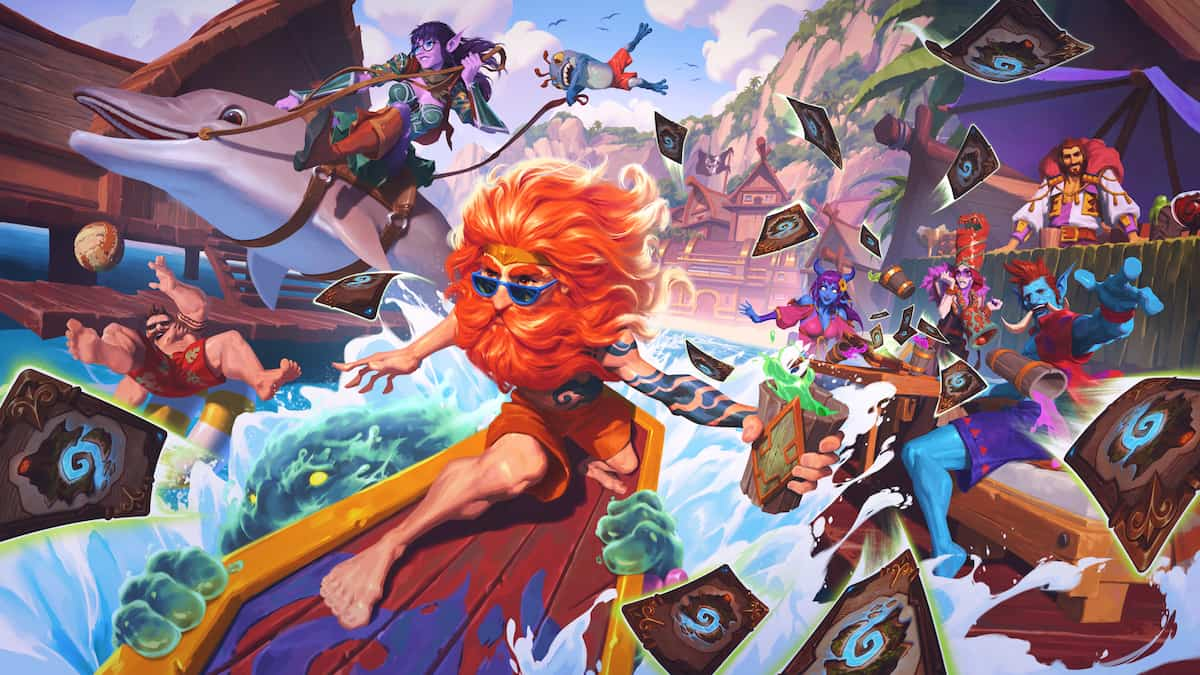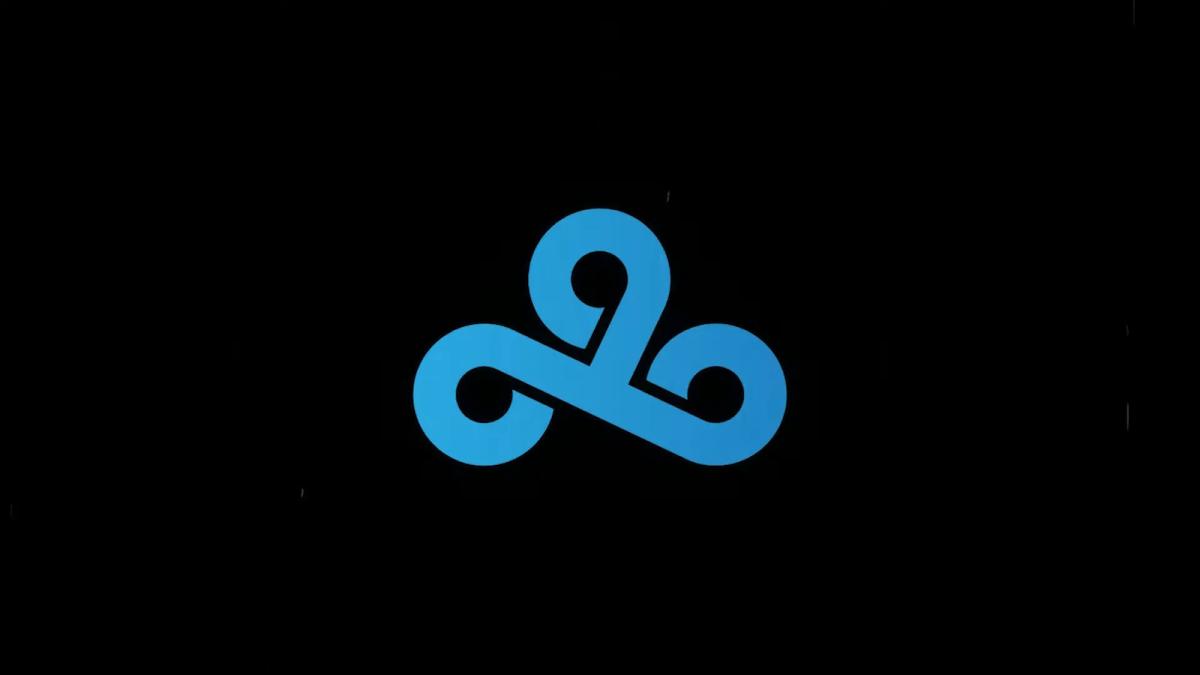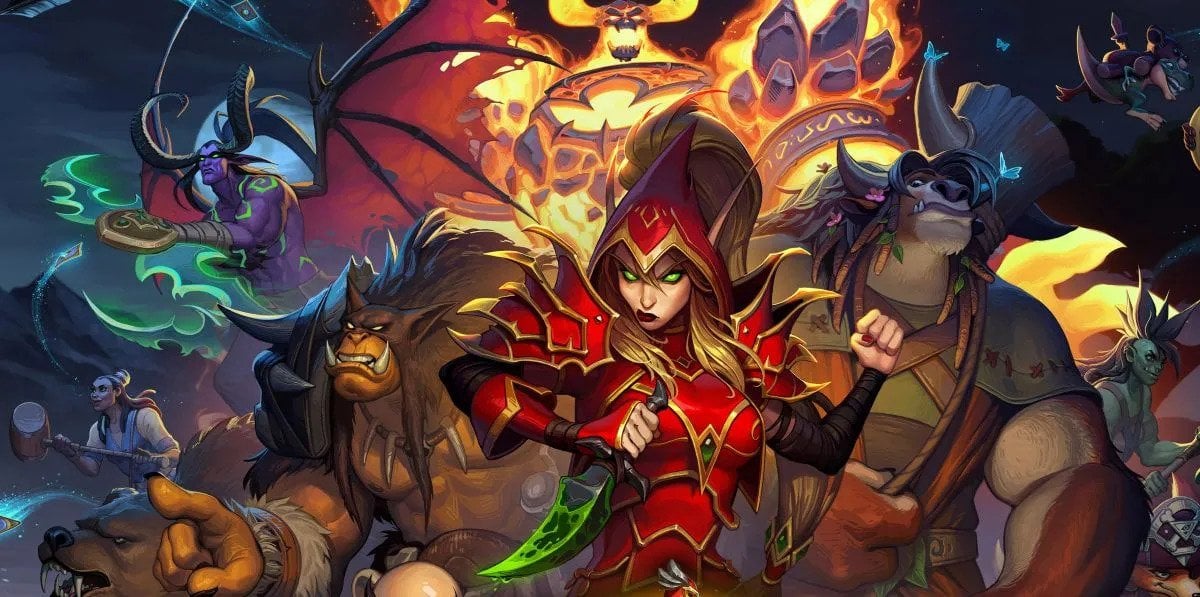It’s been a long ride on this series devoted to applying to Hearthstone the general principles that I’ve acquired over my life as a competitive gamer. If you’ve been following these articles, you’ve hopefully acquired at least one or two strategies that you can use to become a better player. If not, be sure to check out the series index at the end of the article.
Today I’m going to write about two things that wouldn’t fit anywhere else: luck and shortcuts.
Luck and Why It Always Seems To Happen To Other People
There is a saying in chess: “Only good players get lucky.”
This is correct.
There is a more general saying: “Luck favors the bold.”
This is not so correct. In fact, it kind of ignores a lot of historical situations where diving headfirst into a confrontation ended up in merciless slaughter.
Throughout the history of conflict, the world’s greatest tacticians and victors would go to great lengths and take great pains in order to avoid direct conflict as much of possible. They would seize any chance to stack the odds in their favor.
So let’s fix it: “Luck favors the prepared.”
Now, I’ve explained in previous articles the importance of developing a good understanding of the basic rules of probability. Yes, it’s math. No, you can’t avoid math if you ever want to be more than an average player.

You don’t have to be a genius, though. Asmodeus approaches it in a very intuitive manner in his article about How to Look at Randomness in Hearthstone , explaining it better than I ever could hope to. Bookmark it for future reference if you haven’t read it already.
But let’s go a bit beyond understanding probability and into the realm of stacking the odds in our favour.
A disclaimer is needed first. We need to acknowledge that we, as human beings, are terrible at the empirical understanding of randomness. Depending on our mood and personality, we will either remeber much better the times when we were lucky, or the times we were unlucky.
Most people fall into the second category, and that contributes heavily towards going tilt. You are likely no different, and that’s why you should have a solid plan for mastering your psychology.
Now, the best way to deal with this is simply going to the trouble of keeping track of your lucky and unlucky streaks. It’s not practical ( though it would be awesome ) to keep track of every event across all your games, but you should do it when you feel your mind starting to lean in the direction of thinking things like “this stuff always happens to me”.
One of the lead designers of Hearthstone described this beautifully when he commented on Secret Paladin during Blizzcon (I’m paraphrasing from memory, this is not the exact quote) :
“I’ve played against a lot of Secret Paladins in the ladder, and I know that it feels like they always pull it off on turn six. But I know that many times they probably also got a starting hand full for secrets and little to do with them. It doesn’t feel like that to me, but I know it has to be that way.”
Let’s say you have that sinking feeling that the mysterious-challenger always drops on turn 6. What you should do is track how many times that actually happens.
Do keep in mind that by the time Secret Paladin gets to turn 6, it will have naturally drawn about one-third of his deck. It’s just a fact that the longer a game goes on, the more likely it is that either player draws “key” cards. So they will have their card by turn 6 more often than not.
But if you track it, you will see that it won’t be “always” nor anything even close to that.
Following that example, let’s talk about the most obvious and direct way of stacking the odds in our favour: deck building.
If you find yourself often holding onto cards you don’t really want to have on your hand, or never getting the card you really want, then the first thing to look at in order to improve your odds is the construction of your deck.

In the first case: eliminate the cards. They might have made sense at a time, but the meta is constantly shifting and decklists can only be updated so often. And keep in mind that the meta is not the same during the whole ladder. The kinds of decks you will face will vary, sometimes dramatically, depending on your position. Adjust accordingly.
Again, the two key concepts: deck lists can only go so far, and you have to adapt to the current situation. In one word: preparation. Luck favors the prepared.
In the second case: either add complimentary cards, or card draw.
I’ve pointed earlier that the more cards you draw, the more likely you are to draw your key cards. It’s no coincidence that the old Patron Warrior, a deck that lived and died by its intricate combos, had so much card draw. Warrior is actually really good at this because they can also indirectly increase card draw, simply by having the defensive capability to survive more turns.
More turns alive equals more cards drawn, and more opportunities to “get lucky”.
You can also add complimentary cards. If you are playing a control deck, and you feel (and know from keeping score – don’t forget this) that you aren’t drawing your finisher, then consider adding additional finishers. Throw in a ragnaros-the-firelord to have your grommash-hellscream’s back.
The most successful of the new reno-jackson decks take this concept to heart. They never rely exclusively on drawing Reno. They use cards like antique-healbot, lay-on-hands or shieldmaiden for similar, if minor, effect.
But there is another kind of preparation that you can and should consider: bringing a gun to a knife fight.
There’s this part in Indiana Jones and the Temple of Doom (I’m not going to assume you’ve seen it; I know I’m old) where Indiana is confronted by a warrior that threatens him with a magnificent display of swordsmanship.
So he grabs his gun and shoots him.
Some people feel ashamed to use anything in their power reach their goal. They avoid “cancer decks” like Face Hunter and Tempo Mage. Why?
These are decks that have been proven to work (well, maybe not so much now with Reno doing the rounds, but you get the general idea) so why not use them? Afraid of what other players will say about you? You won’t even share a word with most of them anyway!
And really, who decides what decks are “cancerous”? I would say that 90% of that talk is just due to hard feelings from being in the losing end one time too many.
My Secret Tactic
The philosophy of “bringing a gun to a knife fight” goes beyond picking the right deck. Try to think outside the box. Here’s my example:
I’m not the greatest player. Despite knowing all these strategies that I’ve been sharing with you, I just don’t want to commit the time that would be necessary to be among the best in the world.
There are shortcuts, and I’ll talk about them soon, but I am just not willing to commit to doing what it takes to be able to face the best players on even ground.
So what do I do?
Well, I don’t face them.
When I want to climb the ladder, I go to bed early, and wake up between 5 and 6 A.M.

Hearthstone is a big enough game that there are always people playing, but it turns out that the most skilled players don’t usually play at that time. I mostly face casual people that want a quick game before they get on with their morning routines or go to work.
Yes, it can be that simple. Sometimes all it takes to “turn your luck around” is just a little bit of thinking outside the box.
Now, I’m not saying my tactic is right for you, I’m just saying that you should look for whatever steps you can take to make sure luck finds you.
Find Shortcuts
Being good at something is hard work. And everyone has to go through it. Most people that are lauded as “prodigies” in any area are just people that toiled in the shadow for many, many years, and then at some arbitrary point started getting the deserved recognition.
A friend of mine likes to say that “it takes at least one year to have overnight success”. But that doesn’t have to mean that you are obliged to do everything the slow way.
In the coaching space we have a concept known as “The 80/20 Rule”. It goes something like this:
“Eighty percent of your results come from twenty percent of your effort.”
In other words, it means that whenever we set out do something, there are methods that are high in efficiency, and methods that are low in efficiency. Much of what we end up doing results in small wins, small progress, so we have to do a lot of it. And some other things we may do can give us a big boost towards our goals with less effort and time investment.
Think about my previous example, the tactic I used to get up fast in the ladder.
I know I am an above-average player. So it figures that, over a long period of time / big number of games, I would pull ahead and win slightly more games than I lost. So I could just do what many choose to do: grind the ladder. I would be spending 80% of my time for 20% gains. Low efficiency.
What I choose to do was to pick a time when the skill level wouldn’t be quite so high, so I could win more games in less time. That 20% time investment in Ranked play gave me 80% of the wins needed to get to my rank.

And again, this is just one example of a shortcut – there are many other shortcuts out there for you to find.
Reading strategy articles like these is a shortcut in itself. You are drawing upon the experience of other players and layering it on top of your own. You don’t have to spend the time yourself experimenting and learning everything about the game. You can use the knowledge of the people that did that before.
Getting a coach is also a sure-fire way to accelerate your learning. A coach will provide you with a lot of shortcuts: he will spot your flaws and bad habits and make you aware of them, something that would take a lot of games and much self-awareness on your own.
He will tell you exactly what you should study and what you should practice. The amount of time investment and frustration a good coach saves you from can be insane.
The best shortcut, though, is playing people better than yourself.
Play against great players. Be okay with getting crushed. You develop the habits and playstyles of the people you play the most with. If you have a friend that’s closer to where you want to be, take every chance you can to play with him.
I get it, losing a lot is not fun. And if they are constantly improving as well, you may feel you will never catch up. But it doesn’t matter – because you are surpassing everyone else.
You learn next to nothing by stomping people that don’t play as well or don’t have the access to the cards that you do. You may feel an ego-boost from winning; but you should actually feel that ego-boost from learning, for putting up a good fight against someone that you know is way ahead of you.
Because in the end, we also learn by observing, and by repeatedly observing good players, and more so when you are their opponent, you will accelerate the growth of your game exponentially.
I said shortcuts were fast. I never said they would be easy.
Conclusion and Series Index
It was my privilege to be able to write this series, on a site that publishes the writings of players that are so much better than me. I came into this hoping to use my background in other games and in coaching to provide something different, and I think I did it.
I’d like to thank all my colleagues that keep contributing awesome material that helps the communal Hearthstone knowledge go up, and to thank all the commenters that supported these articles through the last month.
You guys rock! Please keep the comments flowing below.
If you haven’t, check out the previous articles in the series:
- Hearthstone Mastery: Goals and Game Plan
- Hearthstone Mastery: Master Your Psychology
- Hearthstone Mastery: Predicting Your Opponent
- Hearthstone Mastery: How to Deceive Your Opponent
- Hearthstone Mastery: Studying the Game





Published: Nov 27, 2015 09:35 am